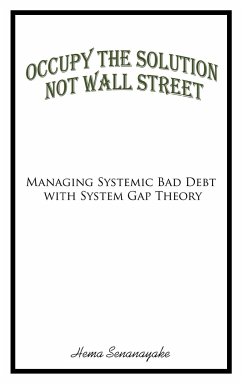The development of physical productive forces is not cyclical, but we have a macroeconomic system that follows boom-and-bust cycles. If the development of physical productive power behaves in a boom-and-bust cyclical pattern, we have to tolerate the boom-and-bust cycle of macroeconomic output and the system as a whole. But if the progress of the physical productive power or the potential of the increment of physical productive power is progressive, it is not necessary to tolerate the cyclical behavior of the macroeconomic system. This does not mean that the business cycles of microeconomic system (which correspond to the performance of individual enterprises) should not be tolerated; instead, such cyclical behavior is necessary to ensure business efficiency that is based on consumer preferences. Businesses should be allowed to fail and new businesses should be allowed to emerge based on efficiency and consumer preferences. But macroeconomic system failures are not due to consumer preferences-but to the general illiquidity of consumers arising from a cyclical bad debt crisis as explained by the System Gap Theory. The illiquidity of consumers is not a physical phenomenon but a monetary phenomenon; and money that is not "real" is an abstract quantity, which we can control. That is why I strongly argue that we could have prevented the collapse of macroeconomic systems in the US and Europe in late 2007-and the continuing crisis can be resolved rather quickly if we change the monetary equation. To do it what was-and is-needed is a new macroeconomic policy tool and wisdom beyond the Federal Reserve.
Hinweis: Dieser Artikel kann nur an eine deutsche Lieferadresse ausgeliefert werden.
Hinweis: Dieser Artikel kann nur an eine deutsche Lieferadresse ausgeliefert werden.








